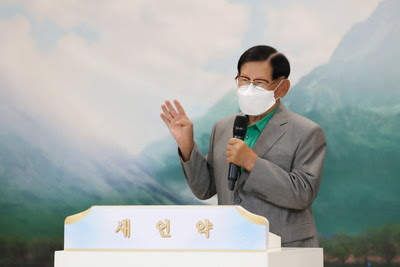Dear Minister, Mr. Ambassador,
Dear Miltiadis,
Honorable Ambassador ad honorem, Mr. Bitsios,
General-Secretary,
Ladies and Gentlemen Ambassadors,
Ladies and gentlemen,
Allow me to begin by welcoming former Minister and Ambassador Petros Molyviatis, to the Ministry of Foreign Affairs, to such familiar surroundings of his.
Mr. Molyviatis is a noble man of public life and a noble representative of Greece’s Diplomatic Service. It is a great pleasure to have him with us today.
With today’s ceremony, we officially welcome to the Ministry of Foreign Affairs the late former Foreign Minister and Ambassador Ad Hon., Dimitrios Bitsios’ archive, which was handed over to us by his son, Konstantinos, himself an Ambassador, and I would like to thank him heartily for this offer. It is not a symbolic gesture. It will contribute significantly to the effort to document important events in our country’s modern diplomatic history.
Dimitrios Bitsios joined the Diplomatic Service in 1939, on the eve of World War II. After the war, he served at our Consulate General and Embassy in Cairo and at our Embassy in London until 1954. In 1955 – that is when the archive that was handed over to us begins- he served as a member of the Greek Delegation to the Tripartite Conference on the Cyprus issue.
He served as Greece’s Permanent Representative to the United Nations for the first time during 1961-1965 and then again between 1967 and 1972. Shortly afterwards, following the restoration of democracy in Greece, Konstantinos Karamanlis initially appointed him as Deputy Minister of Foreign Affairs in the Government of National Unity and then as Minister of Foreign Affairs until the elections of 1977.
This archive contains personal letters and documents relating to foreign policy issues, namely the issues that Dimitrios Bitsios dealt with during his multifaceted career.
A small number of items from his personal archive are also included, especially after he left the Ministry, that is, after the elections of 1977.
In addition to his father’s archive, Konstantinos Bitsios was kind enough to offer archival material from his own personal archive, for which we also thank him, as well as 16 volumes from the family’s collection, the majority of which pertain to the minutes of Security Council and the United Nations General Assembly discussions on the Cyprus issue and have already been added to the collection of the Ministry of Foreign Affairs Library.
Once fully cataloged and organized, although it is being handed over to us in a very organized state, the archive will be made available to the Ministry’s services and, of course, will be digitized in its entirety, as part of the digitization process which we hope to have completed by the end of next year.
It will be extremely useful in conducting our foreign policy in a well-documented manner and allow me to use a personal experience of mine to demonstrate how important this is. In the context of the negotiation of the First Amendment Protocol to the Mutual Defense Cooperation Agreement with the United States, the so-called MDCA, we referred to the exchange of the Bitsios-Kissinger letters; and it was particularly helpful that Konstantinos was able to bring before we could get hold of them, copies of those letters, which constituted the element that enabled us to ask the United States, the then US Secretary of State, Mr. Pompeo to send a letter to Prime Minister Mitsotakis.
Of course, as part of this material, the contacts with our neighbor beyond the Aegean, the contacts that Dimitrios Bitsios had with his Turkish counterparts from time to time, are also of great interest. In general, it was an extraordinarily eventful period, albeit not always a pleasant one. It’s about Greek-Turkish relations and the Cyprus issue.
In addition to accepting this archive, I believe a broader gesture of recognition for Dimitrios Bitsios’ contribution is appropriate.
I, therefore, have the pleasure and honour to announce today that the Historical Archive’s Reading Room, where scholars interested in Greek diplomatic history can come and work, will be renamed the “Dimitrios Bitsios Reading Room”.
We are grateful to Dimitrios Bitsios for his service to his country and we warmly thank his son for the initiative. I would like to assure him that the material will be used to the best of our ability for the benefit of our country.
Thank you very much.
Source: Ministry of Foreign Affairs Hellenic Republic



